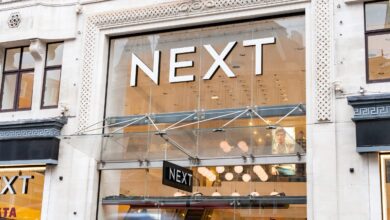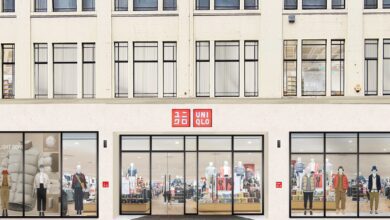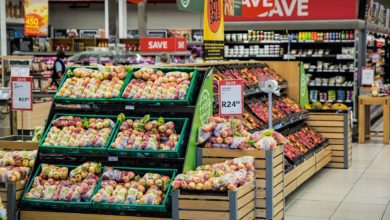How to transform the world of cross-border e-commerce
In today’s interconnected world, cross-border e-commerce has become the lifeline for retailers looking to expand their markets, but the journey is often fraught with logistical, technological, and financial challenges. For Tony Preedy, Managing Director of Fruugo, simplifying this complex puzzle is the mission. Speaking to Talking Shop, Preedy shared how Fruugo’s innovative platform is helping retailers overcome barriers, why blind discounting is a dangerous game, and his perspective on the evolving retail landscape.
The Path to Fruugo
Preedy’s illustrious career spans decades in retail, from direct marketing in the pre-digital era to spearheading cutting-edge e-commerce solutions. Reflecting on his beginnings, Preedy noted, “I started my career in catalogue shopping… sending bits of paper around the country.” Over 15 years with The Very Group, he mastered predictive modelling and sales attribution—skills that seamlessly transitioned into the digital space.
His career trajectory led him to major players such as the Otto Group and Lakeland, where he thrived in building campaigns that fuelled business growth. At Lakeland, Preedy oversaw marketing and international development, recalling the success of campaigns like the gravity-defying cake kit inspired by The Great British Bake Off. “It was a classic case of don’t sell the tube, sell what you can do with the tubes,” Preedy explained, highlighting the power of storytelling in retail marketing.
In 2018, he joined Fruugo, an e-commerce marketplace with a bold vision: to remove the barriers for retailers entering international markets. “The business has grown more than tenfold in the last four years,” Preedy revealed, crediting this exponential growth to Fruugo’s ability to help retailers reach untapped markets.
The Fruugo Advantage
At its core, Fruugo is a technology-driven platform designed to streamline the complexities of cross-border trade. Preedy described it as “a commission-only business” that provides retailers with “free cash” by generating sales they wouldn’t have otherwise achieved. Fruugo handles everything from translating product descriptions and repricing for local markets to navigating tax regulations and fraud screening.
Retailers supply Fruugo with their product data, and the platform takes care of the rest. “We translate it, we reprice it, we do the local marketing in all the countries the retailer tells us they can ship to,” Preedy elaborated. Fruugo even remits sales taxes to the appropriate authorities, alleviating the administrative burden for retailers.
This comprehensive approach has turned Fruugo into what Preedy calls “a bit of a secret weapon” for small and medium-sized businesses. Many of its users are online-only retailers who have seen their operations “turbocharged” by Fruugo’s capabilities.
Overcoming Barriers to Cross-Border Trade
While Fruugo simplifies the process, entering cross-border trade remains daunting for many retailers. “The first barrier is a mental one,” Preedy said. Many businesses hesitate, assuming their products won’t resonate in foreign markets. Preedy urges retailers to challenge this notion: “If you’ve got a good product in one country, chances are there are consumers for that product in other countries. Humans are alike; their needs are similar.”
For those attempting cross-border trade independently, the challenges are significant: translation, currency conversion, local advertising, and compliance with international tax regulations. Fruugo solves these pain points, allowing retailers to focus on what they do best. “By coming onto Fruugo, you sort of use us as an accelerator,” says Preedy.
The Dangers of Discounting
In an era of economic uncertainty, retailers often turn to discounting to move unsold inventory. But Preedy cautioned against the indiscriminate use of price cuts, warning of potential long-term harm. “When you slash the retail price, you’re often decimating your gross margin in a way that can be underestimated if you’ve not done the maths properly,” he explained.
While discounting can be rational in certain cases, such as clearing end-of-season stock, it can erode a brand’s value proposition. “You’re teaching people that you mark down your goods if they wait,” Preedy said. Instead, he advocates for alternatives like targeted marketing campaigns or using platforms like Fruugo to sell products in markets where demand is still high.
The Evolving Retail Landscape
The shift in consumer behaviour has also played a significant role in Fruugo’s success. “Shopping is changing,” Preedy observed. “People are relatively agnostic as to from whom they buy. They’re looking primarily for the item they want at a price they’re willing to pay.”
This evolution has levelled the playing field for smaller retailers, enabling them to compete with industry giants. Fruugo’s platform has been instrumental in empowering these businesses, particularly in navigating the post-Brexit landscape. By handling the additional paperwork and tax complexities, Fruugo has made exporting easier than ever for UK retailers.
The Road Ahead
Looking to the future, Preedy acknowledged the challenges posed by the current economic climate, from cost-of-living pressures to rising interest rates. However, he remains optimistic about Fruugo’s role in helping retailers thrive. “We’re continuing to develop the platform, write new software, and incorporate AI… so that we can get even more effective at converting retailers’ data into orders.”
When asked about his vision for the retail industry, Preedy stressed the ultimate importance of differentiation. He believes that businesses must clearly define their values and points of difference to succeed in an increasingly competitive market.






